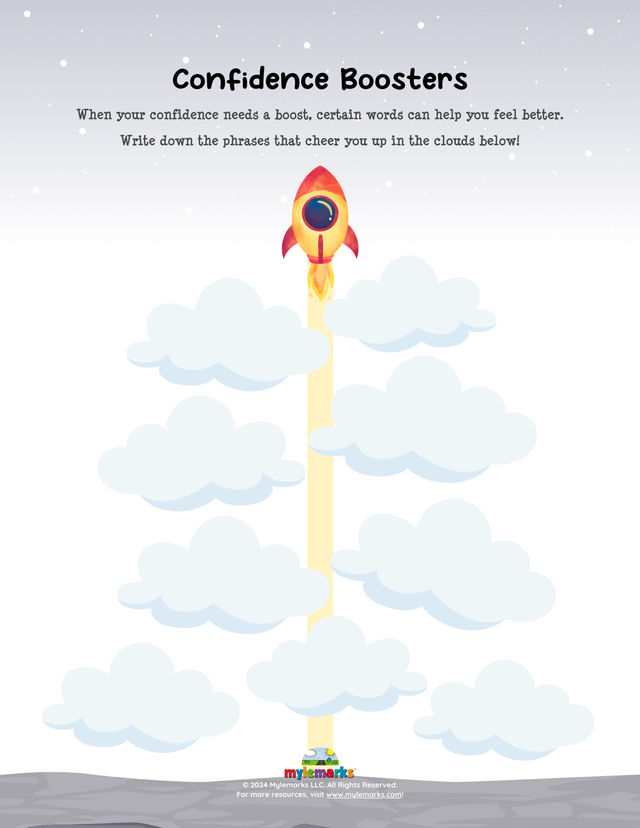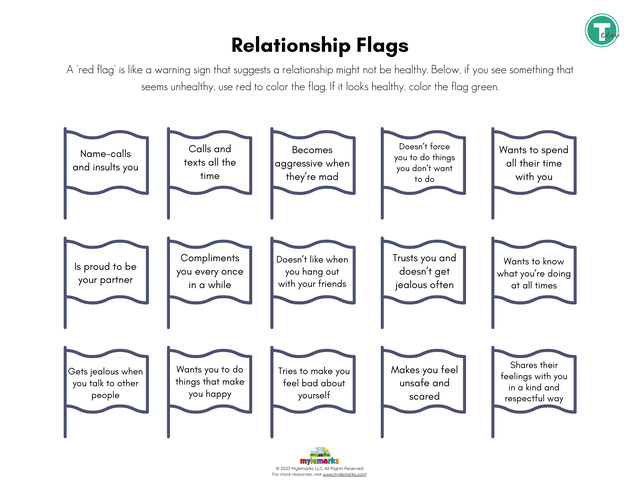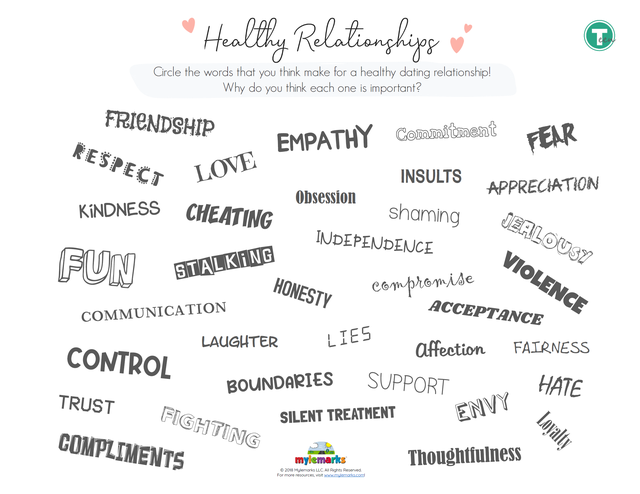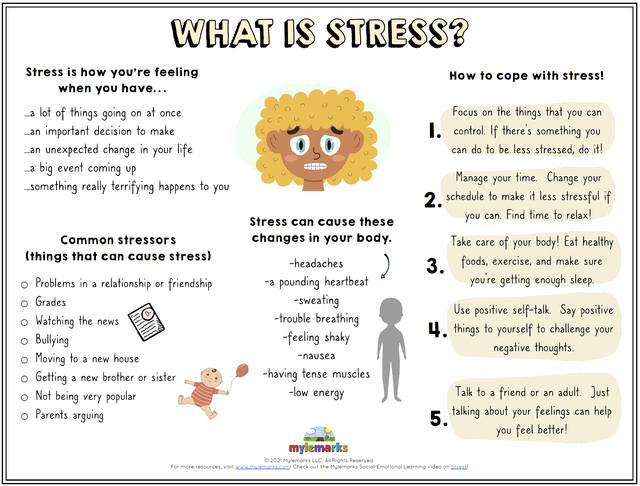- the mylemarker
- Posts
- 💪🏼 Strengths-based, confidence worksheet, Elmo, and more
💪🏼 Strengths-based, confidence worksheet, Elmo, and more
In this edition, explore strengths-based tips for neurodiverse kids, new confidence tools, and key dates you should know.
THE ROAD MAP
In this newsletter, you’ll find:
🚦 First stop (Strengths-based Approach for Neurodiverse Children)
🛤️ Site-seeing at mylemarks.com (Rate My Confidence worksheet)
📡 On the Radar (Elmo & grief, red flags, and more)
📅 Mark your calendars (Important dates to know)
📣 A Word from 1440 Media
🤗 Sharing is Caring (spread the mylemarker love and earn)
Let’s go!

FIRST STOP
💪🏼 Strengths-based Approach for Neurodiverse Children

Photo by FatCamera
A growing movement in education emphasizes adopting a strengths-based approach when teaching neurodiverse students. This method focuses on students' positive attributes rather than their skill gaps, creating inclusive learning environments. Experts caution against labeling disabilities as "superpowers," instead advocating for a balanced perspective highlighting both strengths and weaknesses.
"We can take a strengths-based perspective and capitalize on those strengths while also helping students understand their weaknesses and what helps them."
This approach enables personalized learning plans tailored to individual needs, promoting a more effective learning experience. However, implementing a strengths-based approach requires individualized attention, teacher training and support, and collaboration with related service providers.
Despite challenges, experts believe this approach can significantly improve learning outcomes for neurodiverse students. Educators can unlock students' full potential by shifting the focus from deficits to strengths. Sheldon McAfee, assistant professor of teacher education, emphasizes, "It's about understanding that everyone learns differently. We need to give teachers more training on how to work with these students and provide them with the resources they need to succeed." With the right support and mindset, educators can create a more inclusive and empowering learning environment for all students.
SITE-SEEING at mylemarks.com
NEW: Rate My Confidence

The "Rate My Confidence" worksheet is a great way for kids to check in on how confident they feel in different parts of their life, like school, making friends, or handling stress. They use a 1-10 scale to rate how they feel in situations like public speaking, solving problems, or meeting new people. It helps kids reflect on what they’re good at and where they might want to grow. This worksheet can kick off important conversations about self-esteem and can be used to spot areas where kids feel unsure and build on their strengths to boost confidence. Plus, it’s a tool that can be revisited, helping track progress and celebrate growth over time.
💡 Check out these other resources you might enjoy!
ON THE RADAR
➕ Using Math for Emotional Regulation

A Reddit user shared a clever trick to calm tantrums: asking simple math questions. This technique engages the logical part of the brain, distracting from emotions and helping children regain control. When a child is upset, you can ask basic math questions like "What's 2+2?" or "What's 10-3?" to shift their focus and encourage calm thinking. By raising logic through math problems, emotional intensity decreases. Experts agree, suggesting this "channel-changing" technique can be effective for both children and adults in managing overwhelming emotions.
—
🔴 Teaching Teens to Recognize Dating Red Flags
Teaching teens to recognize dating red flags is crucial for their emotional safety. Trust is foundational in relationships, and teens should learn to trust their instincts. Recent allegations highlight the importance of identifying toxic traits early on. Two personality disorders to watch for are Antisocial Personality Disorder (ASPD) and Narcissistic Personality Disorder (NPD), characterized by disregard for others and a lack of empathy. Teens should be cautious of individuals who avoid eye contact, display grandiose self-perception or dominate social situations. Poor coping skills and disrespect towards others are also warning signs. By recognizing these red flags, teens can build healthy relationships based on mutual respect, trust and emotional safety. Open discussions can prepare them to navigate dating with confidence.
—
🙏 Father Fights for Change After Teen's Tragic Death
Bruce Brown's 17-year-old son, Bennett, tragically died by suicide using sodium nitrite, a lethal chemical he bought online for just $13. Bennett had struggled with mental health issues after battling long Covid and a severe concussion. His father believes easy access to this substance contributed to his son's impulsive decision. Now, Brown is advocating for change, supporting the Youth Poisoning Prevention Act to limit online sales of sodium nitrite. The bill aims to ban high-concentration sales nationwide and has already passed the House, awaiting a Senate vote. By sharing his story, Brown hopes to raise awareness about online dangers and mental health support. His efforts aim to prevent similar tragedies and promote a safer online environment.
—
💔 Andrew Garfield Talks to Elmo About Missing His Mother
Andrew Garfield talks to Elmo about missing his mother after she recently passed away.
“When I miss her I remember it’s because she made me so happy, I can celebrate her & miss her at the same time”
— DiscussingFilm (@DiscussingFilm)
3:50 PM • Oct 18, 2024
—
👨🏿👦🏿 Higher Risk for Autism in Younger Siblings
A recent study by the UC Davis MIND Institute found that younger siblings of autistic children have a significantly higher chance of developing autism. Approximately 20.2% of these siblings are diagnosed with autism, with boys being more likely (25.3%) than girls (13.1%). However, girls in families with multiple autistic siblings face a much higher risk, at 39.5%. The study also revealed that non-white infants and those with less-educated mothers have higher recurrence rates. Researchers emphasize the importance of close developmental surveillance and prompt referrals for diagnostic evaluation. Early monitoring is crucial, particularly for high-risk groups. By identifying autism early, families can access timely interventions and support. This study underscores the need for continued research into autism's genetic and environmental factors.
MARK YOUR CALENDARS
Here are some dates and resources you should know!
-Red Ribbon Week (October 23-31) – Focuses on drug prevention and raising awareness about the impact of substance use on children's well-being.
-National Family Literacy Day (November 1) – Promotes reading within families, which can be linked to improved mental health and family bonding.
-International Stress Awareness Week (November 6-10) – Highlights the importance of stress management and mental health, including for children and teens.
A WORD FROM 1440 MEDIA
Seeking impartial news? Meet 1440.
Every day, 3.5 million readers turn to 1440 for their factual news. We sift through 100+ sources to bring you a complete summary of politics, global events, business, and culture, all in a brief 5-minute email. Enjoy an impartial news experience.
My daughter told me there is a small get together at school on Friday.
I asked her, "How small?"
She replied,
"Just you, me, and the principal.— єℓαιηє (@elainesim28)
5:44 AM • Sep 10, 2024
Worksheets | Activities | Workbooks | Journals | Games | Videos | Freebies





